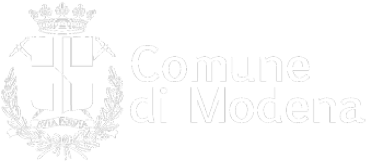Fiorano Modenese
The town of Fiorano Modenese is eighteen kilometers south of the center of Modena. At its feet are the foothills and, at its back, fascinating gullies eroded into the clay.
Why it's worth a visit
The pleasant village of Fiorano is known all over the world for its ceramics, showcased in the Museum of Ceramics (a must-see!) in the fascinating Spezzano Castle. The Castle also houses the Municipal Vinegar Cellar in a pentagonal tower with three “batteries” of barrels, along with a remarkable cycle of Renaissance paintings. Because the Ferrari proving grounds are located nearby, Fiorano has earned the nickname “Motor City.” It is, in fact, the adopted town of the legendary Enzo Ferrari. The works of many different Italian and international designers, created to honor Ferrari, are housed in the Museum of Ceramics.
These are a few great reasons to visit Fiorano Modenese—but they’re not the only ones! The many special experiences the area has to offer include the Salse di Nirano Nature Reserve, a geological site of special interest for its unique “mud volcanoes.”
Sites you won't want to miss
The Sanctuary of the Blessed Virgin del Castello and the Town
The Sanctuary of the Blessed Virgin del Castello is a magnificent example of Baroque architecture. Built in the 1600s by Francesco I of the House of Este, it was designed by the architect Bartolomeo Avanzini, who also designed the Ducal Palace in Sassuolo. Constructed on the site of an ancient castle, the Sanctuary dominates the Fiorano hills, serving as the town’s symbol and a visual reference point for anyone arriving from the river valley.
The Sanctuary became the nucleus not only for the village that grew up around it, but also for an important tradition of religious pilgrimages, the central focus of which is the Feast of September 8th, an historic festival that commemorates the birth of the Virgin Mary.
The Sanctuary is constructed on a Greek-cross plan, with an elegant central dome, two bell towers, and twin sacristies. A small piazza in front of the Sanctuary is dedicated to Pope John Paul II, with a bronze statue of the pontiff. This is also the last stop in the Cammino delle Beatitudini, a traditional September procession in which children and families make their way on foot from the town to the Sanctuary. An archaeological area preserves the remains of the ancient castle, which was destroyed to make way for the Sanctuary. A pleasant stroll then takes visitors among the houses of the historic village (known as the “Sasso”), following an open-air itinerary called “s/Viste.” Giant ceramic slabs—thirteen in all—have been placed along the walls of the old town, and the excursion moves from one to the next. The first is in Piazza Ciro Menotti, Fiorano’s central piazza, at the foot of the hills.
The Gilles Villeneuve Monument
The Gilles Villeneuve Monument stands on the street of the same name, which leads to the Circuito di Fiorano (Ferrari proving grounds). Villeneuve was a Canadian driver who raced for Ferrari in six Grand Prix competitions before dying in a tragic collision in 1982.
Good things to eat
Here, as in the entire Modena Province, you can sample the best known local specialties, including PDO (protected designation of origin) Parmigiano-Reggiano cheese, Lambrusco wine, zampone and cotechino (dishes made from a mixture of ground pork flavored with herbs and spices and stuffed into the hollowed-out lower-leg of a hog), prosciutto, fresh filled pastas, gnocco fritto (pastries something like a deep-fried dumpling), crescentine (a round, flat bread, flavored with spices and generally eaten with cold cuts, cheese, or spreads), and PDO and PGI (protected geographical indication) balsamic vinegar. Other local agricultural products are the result of long traditions of cultivation: artichokes, capers, and figs.
Artichokes, which thrive in sunny, slightly alkaline soil, were once the main domestic crop in garden plots on the hills above the Fiorano Sanctuary. At the time, in fact, artichoke fields completely covered their flanks, and a few families still grow them. The caper is another plant that likes alkaline soil and can be seen growing on sunny sections of stone walls, including on Nirano Castle and the Sanctuary of Fiorano. The plant’s blossom, preserved in salt, complements traditional local foods, such as “salsa verde,” served with boiled meat. White and black figs were also an important local product in the past, and many fig trees can still be seen along the nature trails in the Salse di Nirano Reserve.
Important events
May in Fiorano Festival (May)
The May in Fiorano Festival lasts all month long and traditionally includes a rich calendar of cultural events, performances, street vendors, food stands, processions, sports competitions, and dance and music concerts.
September 8th Festival
A 300-year-old tradition, the Feast of September 8th draws thousands of pilgrims to Fiorano. At midnight, an extraordinary fireworks display, visible from the entire river valley, is staged on the hill. Many religious celebrations are held at the Sanctuary, and pilgrims can reach a miraculous image of the Madonna and seek her blessings. Stalls and stands serve traditional local food.
Festival of San Rocco (August 14-16, Spezzano)
Traditional and centuries-old, the Festival of San Rocco takes place in Spezzano around the Ferragosto holiday (August 15). The Festival’s highlights include culinary adventures, performances, music, exhibits, parades of vintage and modern farm equipment, marketplaces, and exhibitions of off-road vehicles. The day honoring St. Roch (San Rocco), August 16, is celebrated with a mass in the courtyard of the oratorio with the blessing of farm equipment and a traditional procession.
The Ennesimo Film Festival (May)
The Ennesimo Film Festival was inaugurated in 2015 and takes place each year at the beginning of May at the Astoria Theater in Fiorano. The festivities are aimed at increasing public awareness of the film arts, introducing short subjects and short-subject makers, and showing the public the many aspects of contemporary international cinema.
Piazze #sodinonsapere (beginning of June)
Piazze #sodinonsapere is a three-day event held among the town’s piazzas and features a packed program of events and debates on current events. Thinkers, journalists, musicians, and other intellectuals gather in the piazzas, at he Astoria Theater, and at the BLA Library to discuss and analyze the state of the modern world.
Note di Notte (between July and August)
The “Notes at Night” event, a program of musical performances, takes place in the magical setting of the Spezzano Castle courtyard each year between July and August.
Nearby
Spezzano Castle
Spezzano Castle was likely built in the 11th century as part of Matilde di Canossa’s system of defense. It became a noble residence for the Pio di Savoia family during the Renaissance, who added a porticoed courtyard and a series of frescos. The Sala delle Vedute, which overlooks the splendid internal courtyard, is particularly striking. Painted around 1596 by Cesare Baglione, it is something like a 16th-century photograph and depicts fifty-seven of the areas controlled by the Pio family, including villages and castles. The Galleria delle Battaglie is on the second floor. There, a cycle of frescoed panels, designed to resemble tapestries, depicts scenes of battle.
The castle is home to the Fiorano Museum of Ceramics which occupies the second floor and the basement. Here, you’ll learn the stories of the men and women who contributed to the creation of the ceramics district and who produced the tiles that have become one of the area’s most admired products, both in Italy and abroad. If you reserve your visit at least four days ahead, you can combine it with a guided tasting tour of traditional PDO (protected designation of origin) balsamic vinegar at various stages in the aging process.
Museo della Ceramica - The Spezzano Museum of Ceramics
The Museum of Ceramics recounts the history of the production of pottery and ceramics from the Neolithic to the present, using experimental archaeological reconstructions of such tools as kilns, hand-operated wheels, molds for bricks, and other potters’ instruments. The Modern Section details the birth and development of industrialization and the first steps in mechanization. In the Contemporary Section, displays pass before the audience like a conveyor belt, explaining the mass-production of tiles from the pre-war period to the end of the millennium. The Contemporary Collection is a collection of works by Italian and international artists and ceramicists and represents design, architectural ceramics, and innovative techniques. Finally, the Manodopera section, in the basement of Spezzano Castle, is a multimedia installation that introduces the voices and experiences of the men and women who once worked in the factory. A virtual guide accompanies visitors on a journey through time among machinery, workbenches, talking tiles, and factory employees.
The Salse di Nirano Nature Reserve
The Salse di Nirano Nature Reserve, founded in 1982, covers nearly 500 acres in the foothills of the Apennines. The park conserves the largest and most unusual group of mud volcanoes in Emilia-Romagna. These formations, known locally as “the Salse,” are actually pseudo-volcanic in origin. They’re extrusions of cold mud produced when sea water rises through faults in the earth and mixes with hydrocarbons (methane and petroleum) which, as they rise to the surface, partially dissolve the clay to create the typical cone or “volcano” shapes.
A network of thirteen trails and educational exclusions are open to all visitors, including those with physical or visual handicaps. During the warm Spring and Summer months, the Salse di Nirano Nature Reserve’s many nature trails and hikes are a special delight.
The Grave of Patriot and Martyr Ciro Menotti
Ciro Menotti was a patriot during the Risorgimento (the Unification of Italy) who joined the Carboneria (a secret Italian revolutionary society) and was arrested in 1831 and sentenced to hang. He is credited with having been among the first to imagine and to seek freedom for Modena as well as the unity of the Italian peninsula under one flag. His body was buried in the Spezzano Cemetery and then moved in 1929 to a monument in the Church of St. John the Apostle in Spezzano. The Renaissance-style chapel is covered in polychrome marble and bears the coats of arms of the towns of Carpi, Modena, and Fiorano, where Menotti was born, lived, died, and was buried.
The Best time for a Visit
Fiorano has a lot to offer in every season, including culture, art, tradition, food, and wine, which makes any time of year appropriate for a visit. The rear terrace of the Sanctuary of the Blessed Virgin is a treat for photographers and, on clear days, the panorama extends north to the Ghirlandina Tower in Modena and south to the gullies of the foothills. The Salse are also a perfect stop during the warm Spring and Summer months.









